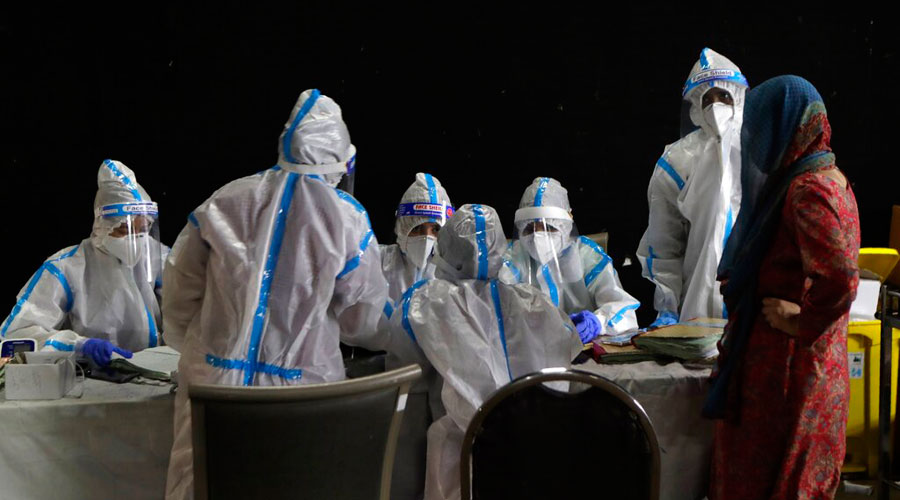The Indian Council of Medical Research on Thursday announced plans for a second nationwide survey to determine the population’s exposure to the new coronavirus without revealing the full details of the first survey, held more than two months ago.
The second sero-survey will — like the earlier one — look for molecular signatures of previous infection by SARS-CoV-2, the virus that causes Covid-19, in samples of healthy people from across the country, two health officials said.
“Another sero-survey is under planning. We will see a lot of results coming up in the public domain very soon,” Nivedita Gupta, a senior scientist in the ICMR’s epidemiology division, told reporters.
But several public health experts have questioned the ICMR’s delay in sharing the details of the first survey, conducted in more than 60 districts including six in Bengal, and 10 large cities including Calcutta.
The first survey was intended to throw up estimates closer to the true burden of the infection in those locations.
India on Thursday recorded 24,879 new Covid-19 cases, its highest-ever |single-day increase, raising the number of cases to 767,296, of whom 269,789 |patients are under medical supervision, 476,378 have |recovered and 21,129 have died.
But health experts say the country’s true burden |of infection is likely to be much higher because 80 per cent of the patients have mild illness. Many such |patients who have not been diagnosed or isolated may have passed the infection |on to others.
Health researchers familiar with the preliminary findings of the first sero-survey had told The Telegraph last month that it had detected exposure levels of up to 30 per cent in some areas.
The ICMR had on June 11 revealed that the infection level in the sampled populations, averaged across the country, was 0.73 per cent. This, public health experts have said, would mean that tens of thousands of people have unknowingly become infected and recovered.
A network of physicians called the Progressive Medicos and Scientists Forum had last month castigated the ICMR’s delay in presenting the full survey results, saying the single number presented (0.73 per cent) “seeks more to hide the reality than reveal it”.
A Union health ministry official said the earlier sero-survey had focused on mid-April infections and its preliminary findings had already been shared.
“All such sero-survey studies or any other scientific study is subject to peer review and those inputs are also incorporated,” said Rajesh Bhushan, officer on special duty in the health ministry.
“That process is going on. We will be able to share (the details) once that process is over.”
But, Bhushan added, the ICMR is currently planning a follow-up sero-survey across India.
ICMR officials have not explained the delay in sharing the findings of the first survey. But some health experts speculate that the findings might provide clinching evidence of a much larger load of infections in the country than portrayed by the health ministry through lab-confirmed cases.










